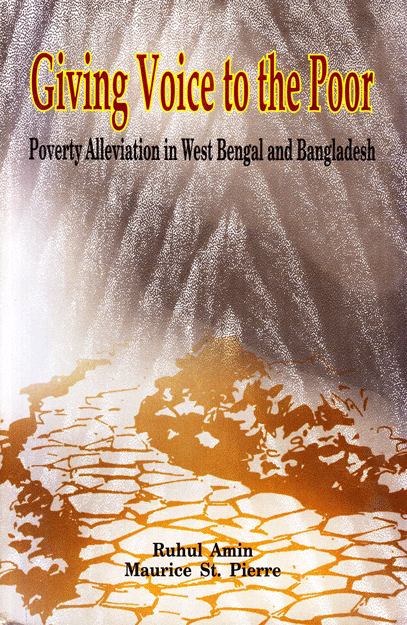
- Shop
- Giving Voice to poor Poverty Alleviation in West Bengal and bangladesh
Giving Voice to poor Poverty Alleviation in West Bengal and bangladesh
| Language: English |
Tags :
Book Info
The focus of this book is on the important topic of poverty alleviation, in two relatively undeveloped areas in Asia, namely, West Bengal in India and Bangladesh. The authors argue that poverty is not merely of great concern to the people of these two areas but also to the rest of the world, especially the developed world, because of its political-economic consequences, including international terrorism. From this premise and using a conflated theoretical perspective that encompasses systems, conflict, and modernity theories, the authors proceed to show how the history of landlordism, disparities in income distribution, political violence, and undulating democracy have created a framework for corruption and patronage. This is manifested at the state and national levels and with respect to the utilization of foreign aid meant to benefit the poor. As a consequence, foreign aid has not been efficacious as a tool for poverty alleviation. They argue that any effective poverty alleviation programme must involve the political parties. The government must find the political will to mobilize and educate the rural poor, in the direction of jettisoning those facets of traditional order that militate against the interests of the masses while embracing those of the modern order that facilitate the goal of poverty alleviation. The book should be of interest to politicians and academics, as well as to aid donors and Asian experts in Western countries.

Ruhul Amin
Ruhul Amin worked in Bangladesh’s Government Service and taught at the University of Chittagong for a number of years before migrating to the United States where he studied sociology with a specialization in Demography at the University of Chicago and Catholic University. He is currently Director of the Institute for Urban Research at Morgan State University. He has more than two decades of experience in administering, evaluating, and researching action and training programmes in family planning, primary health care, and income-generation in Bangladesh, West Africa, China, Vietnam, North Korea, and the USA. His publications include: Development Strategies and Socio-Demographic Impact of non-Governmental Organizations. Evidence from Rural Bangladesh (Dhaka: The University Press Limited, 1997).

Maurice St. Pierre
Maurice St. Pierre has served in Guyana’s civil service, including a period at the Ministry of Economic Development where he worked on the Development Plan. A sociologist by training. he is the author of a number of publications on Black America, and the Caribbean including a recent book entitled, Anatomy of Resistance Anti-Colonialism in Guyana, 1823-1966 (London: Macmillan, 1999). He teaches Sociology at Morgan State University.


